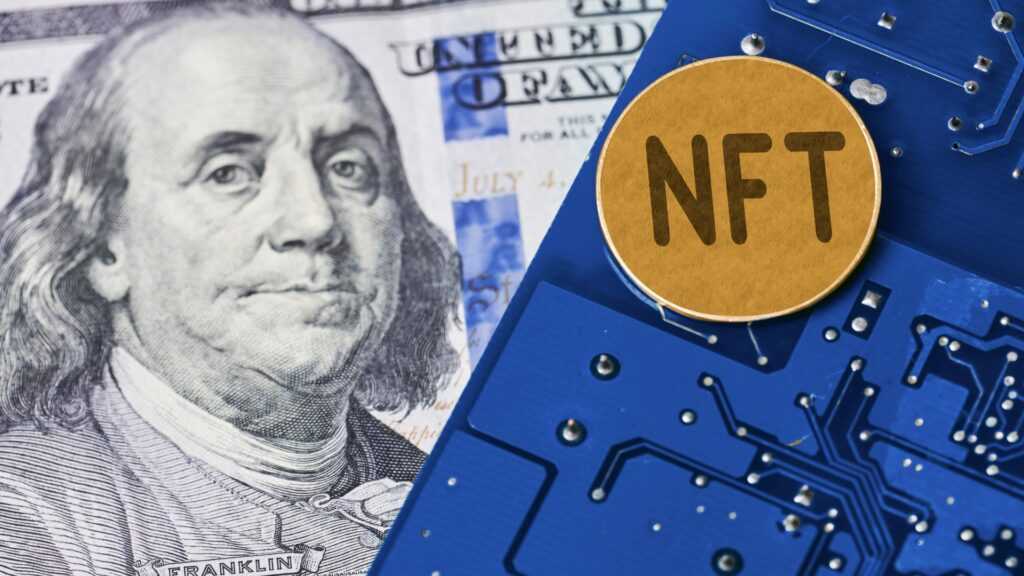Immersing myself in the world of gaming, I’ve witnessed a revolutionary shift propelled by Non-Fungible Tokens (NFTs). These unique digital assets have sparked a frenzy within the gaming industry, transforming how players interact with in-game items and experiences. As a game enthusiast, I’ve delved into the impact of NFTs on game development, virtual economies, and player ownership rights.
Exploring the fusion of blockchain technology and gaming, I’ve uncovered the potential for NFTs to revolutionize the way gamers perceive and engage with virtual worlds. The concept of true ownership, enabled by NFTs, has the power to redefine the gaming landscape, offering players unprecedented control over their in-game assets. Join me on a journey to unravel the intricate relationship between NFTs and the gaming industry, where innovation meets imagination in a digital realm like never before.
Overview of NFTs in the Gaming Industry
Exploring the landscape of Non-Fungible Tokens (NFTs) within the gaming industry reveals a groundbreaking shift in how players engage with virtual worlds. NFTs, unique digital assets represented on blockchain technology, have revolutionized the concept of ownership in gaming experiences. As a gaming enthusiast, I delve into the fusion of NFTs and gaming, showcasing the emergence of a new era where players have real control over their in-game assets. This innovative relationship between NFTs and gaming signifies a significant evolution in digital interactions and opens doors to unparalleled gaming experiences.
Impact of NFTs on In-Game Assets
Exploring the impact of Non-Fungible Tokens (NFTs) on in-game assets reveals a paradigm shift in the gaming industry. NFTs have revolutionized the concept of ownership within virtual worlds, offering players unprecedented control over their in-game items. This transformation is redefining the way gamers interact with and perceive virtual assets, creating a new era of ownership and authenticity in gaming experiences.
By integrating blockchain technology, NFTs ensure true ownership of digital assets, enabling players to buy, sell, and trade in-game items with verifiable scarcity and uniqueness. This innovative approach not only enhances player immersion but also introduces a new level of value and rarity to virtual possessions, elevating the gaming experience to a whole new standard.
The introduction of NFTs in gaming marks a significant evolution in how players engage with virtual worlds, empowering them with tangible ownership rights that were previously unattainable. This fundamental shift in ownership dynamics fosters a sense of exclusivity and personalization, driving the demand for unique and authentic in-game assets that reflect the individuality and preferences of each player.
The integration of NFTs in the gaming industry represents a groundbreaking development that not only enhances player experience but also paves the way for a more immersive and dynamic gaming environment. The impact of NFTs on in-game assets is reshaping the landscape of virtual ownership, offering players a newfound sense of control, authenticity, and value in their gaming pursuits.
Integration of NFTs in Popular Games
As a gaming enthusiast, I delve into the captivating realm of integrating Non-Fungible Tokens (NFTs) in popular games, exploring how these unique digital assets are reshaping player experiences and interactions.
Blockchain Technology in Gaming
Immersing myself in the intersection of blockchain technology and gaming reveals a paradigm shift in how virtual worlds operate. By leveraging blockchain, games can now offer players true ownership of in-game assets, empowering them in unprecedented ways.
Benefits of Using NFTs in Games
Exploring the advantages of incorporating NFTs in gaming unravels a plethora of benefits. From fostering player immersion and enhancing rarity to enabling personalized experiences and driving demand for unique assets, NFTs offer a gateway to a more engaging and dynamic gaming environment.
Challenges and Concerns of NFTs in Gaming
Exploring the challenges and concerns surrounding Non-Fungible Tokens (NFTs) in the gaming industry is crucial to understanding the potential hurdles and issues that may arise with their widespread adoption. As a gaming enthusiast and industry observer, I delve into the nuanced aspects that impact the integration of NFTs in gaming.
- High Barrier to Entry for Players:
Navigating the world of NFTs can be overwhelming for players new to blockchain technology and cryptocurrency. The requirement of setting up digital wallets, understanding smart contracts, and engaging with decentralized platforms presents a steep learning curve that may deter casual gamers from participating. - Scalability and Environmental Impact:
The scalability of NFTs in gaming raises concerns about the environmental impact of blockchain networks. The energy-intensive process of minting and trading NFTs has come under scrutiny for its carbon footprint, leading to debates around sustainable practices and the long-term viability of NFT ecosystems. - Lack of Regulation and Security:
The decentralized nature of NFTs poses challenges in terms of regulation and security. Without centralized oversight, issues such as copyright infringement, fraudulent activities, and data breaches can undermine the integrity of NFT transactions, creating legal uncertainties and security risks for both players and developers. - Market Saturation and Value Proposition:
The rapid proliferation of NFTs in gaming has led to concerns regarding market saturation and the dilution of value. With an abundance of digital assets flooding the market, maintaining the scarcity and exclusivity that underpin NFT value propositions becomes increasingly challenging, potentially diminishing the perceived worth of in-game items. - Community Backlash and Perceived Exclusivity:
Introducing NFTs to gaming communities can trigger backlash from players who view them as mechanisms that prioritize financial gain over gameplay experience. The perceived exclusivity of NFTs may alienate segments of the player base, leading to divisions within the community and challenging the inclusivity of gaming environments.
By acknowledging and addressing these challenges and concerns, the gaming industry can proactively mitigate risks and foster a more transparent and resilient ecosystem for integrating NFTs. As the landscape continues to evolve, navigating these complexities is essential to unlocking the full potential of NFTs in enhancing player experiences and redefining virtual economies.
Future Trends of NFTs in the Gaming Industry
Exploring the horizon of NFTs in the gaming industry reveals intriguing insights into the upcoming trends that could shape the future landscape. As blockchain technology continues to intertwine with gaming ecosystems, the evolution of NFTs is set to revolutionize player experiences and redefine traditional gaming paradigms.
- Metaverse Integration:
- Enhancing player interactions within expansive virtual worlds, NFTs are poised to play a pivotal role in shaping the metaverse. From unique in-game assets to personalized experiences, the integration of NFTs is projected to create a seamless digital environment where players can truly own and monetize their virtual possessions.
- Cross-Game Asset Portability:
- With the rise of interoperability, the future of NFTs in gaming is likely to witness a surge in cross-game asset portability. Players will have the flexibility to transfer their NFTs across multiple gaming platforms, fostering a dynamic environment where virtual assets hold value beyond individual games.
- Augmented Reality (AR) and Virtual Reality (VR) Experiences:
- NFTs are anticipated to enhance AR and VR experiences in gaming, blurring the lines between physical and digital realms. Through the utilization of NFTs, players can unlock exclusive content, virtual spaces, and immersive in-game assets that augment their reality and redefine the boundaries of gameplay.
- Dynamic In-Game Economies:
- The future trends of NFTs in gaming also point towards the emergence of dynamic in-game economies powered by blockchain technology. With the ability to tokenize digital assets and create scarcity, NFTs will drive player engagement, encourage trading, and establish robust economic structures within gaming worlds.
- Innovative Monetization Models:
- NFTs are expected to introduce innovative monetization models in gaming, offering players unique opportunities to earn, trade, and invest in virtual assets. From digital collectibles to tokenized in-game items, the future integration of NFTs will diversify revenue streams for players and developers alike.
Anticipating these future trends underscores the transformative potential of NFTs in the gaming industry, heralding a new era of decentralized ownership, immersive experiences, and economic empowerment within virtual worlds. As the gaming landscape continues to evolve, embracing the paradigm shift facilitated by NFTs paves the way for boundless creativity, player-driven economies, and a redefined gaming ecosystem at the forefront of technological innovation.



